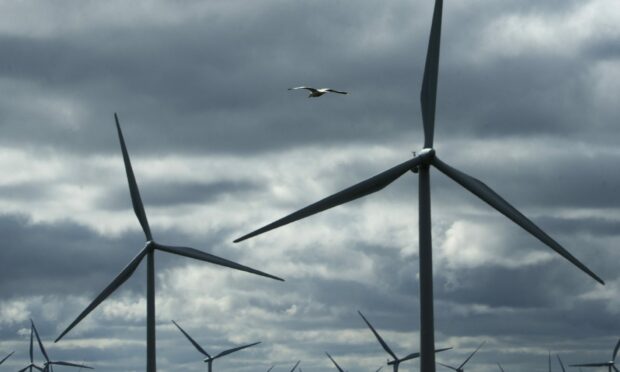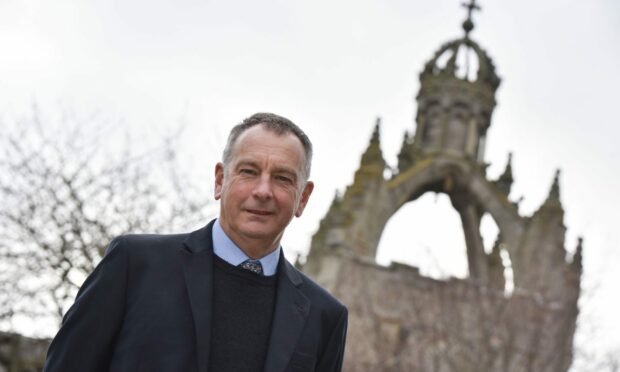The UK has “critically underinvested” in renewables and is too reliant on importing gas from abroad to plug energy gaps, a St Andrews University expert has warned.
Dr Sean Field, a researcher at the Fife university, said the escalating cost of living crisis has been “politically constructed” due to poor planning.
Energy bills across Scotland are set to soar to unprecedented levels as families fear they could be plunged into poverty.
Many households are already struggling to make ends meet due to inflation reaching record levels.
A Bloomberg report earlier this week warned Britain could face organised blackouts in a worst-case scenario this winter.
It drew comparisons to the 1970s when the UK temporarily had a three-day working week while there was a shortage of coal.
Will the lights stay on?
While Dr Field believes a full blackout is “pretty unlikely”, he admitted it remains a “cause for big concern”.
The academic, who works in the university’s energy ethics department, told The Courier: “The problem with energy prices is really politically constructed.
“We’re dependent on these constant import supplies from continental Europe.
“That’s a major policy problem that has been constructed by neglect over the last 10-15 years.
‘Critical underinvestment’
“There has been a critical underinvestment in renewable energy production, which again has made us dependent on natural gas.”
He added: “Right now there is no supply crisis. What we have is a price crisis.”
Dr Field put the blame squarely with political leaders and insisted consumers need more help to get by.
Tory leadership candidates Rishi Sunak and Liz Truss have both been pressured to offer more support for households before the energy price cap rises in October.
Ex-prime minister Gordon Brown warned vulnerable Fife pensioners may resort to sleeping in churches to avoid higher bills.
The former Labour leader claimed charities are “dreading” the winter as more locals fall into poverty.
‘Put pressure on politicians’
Dr Field said: “For this price crisis, the most immediate thing you can do is plan a subsidised, incredibly low energy tariff for the poorest households, pensioners and people on fixed incomes.
“What I would encourage people to do is really put pressure on politicians to fix this problem. Households didn’t make this problem. Politicians did.”
Professor John Underhill, an energy expert from Aberdeen University, also warned the UK is heavily dependent on oil and gas.
He insisted renewable energy alone won’t be able to plug existing gaps.
The energy expert said: “All options need to be laid on the table and evaluated against each other with a view to getting the right mix to make sure we are not reliant on one single source of energy.
“It’s great to have wind and solar, but in those days when it’s cold, windless and grey we need to have a backup, be that gas or other sources.
“We want to reduce our carbon footprint, but at the same stage we must address fuel poverty and ensure we have security of supply.”
But he agreed with Dr Field that full blackouts are unlikely and said the UK is in a better position than some European countries who have typically depended on Russia for gas.
Dr Field insisted the Scottish Government should focus on ramping up renewables instead of building new nuclear plants.
He said: “I think the investment would be better put in renewables.
“Nuclear energy is a possibility, but perhaps not the solution we should be looking at.
“If we were going to construct new nuclear facilities, that’s years in the making. By contrast we could put up much faster solar panels and wind turbines which don’t have the same concerns about waste handling and storage.”
Climate crisis
Michael Matheson, the Scottish Government energy secretary, said no one suggests the country can solely rely on wind and solar.
He added: “The reality of the climate crisis cannot be wished away, nor can the cost of living crisis.
“Arguing for a greater reliance on gas ignores the fact that the current and forecast surge in our energy bills is almost entirely due to spikes in the price of gas.
“Renewables as a whole – far cheaper than gas – plus storage, hydrogen and carbon capture provides the best pathway to energy security and net zero by 2045.
“The critical challenge is to make that transition in a way that if just and fair, delivers jobs and economic benefits, ensures our energy security and meets our climate obligations.”



